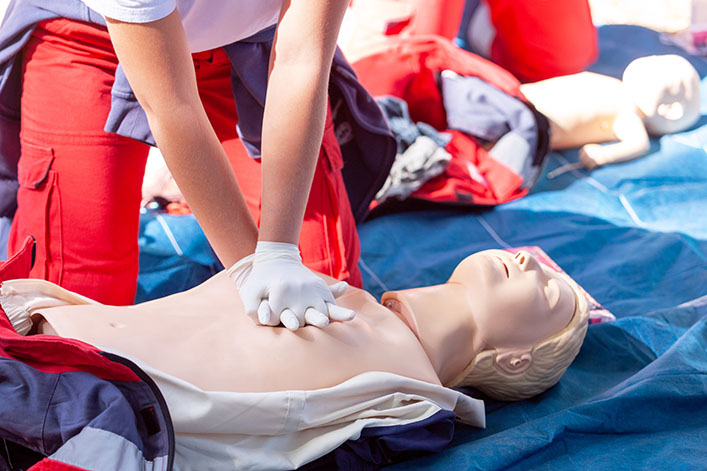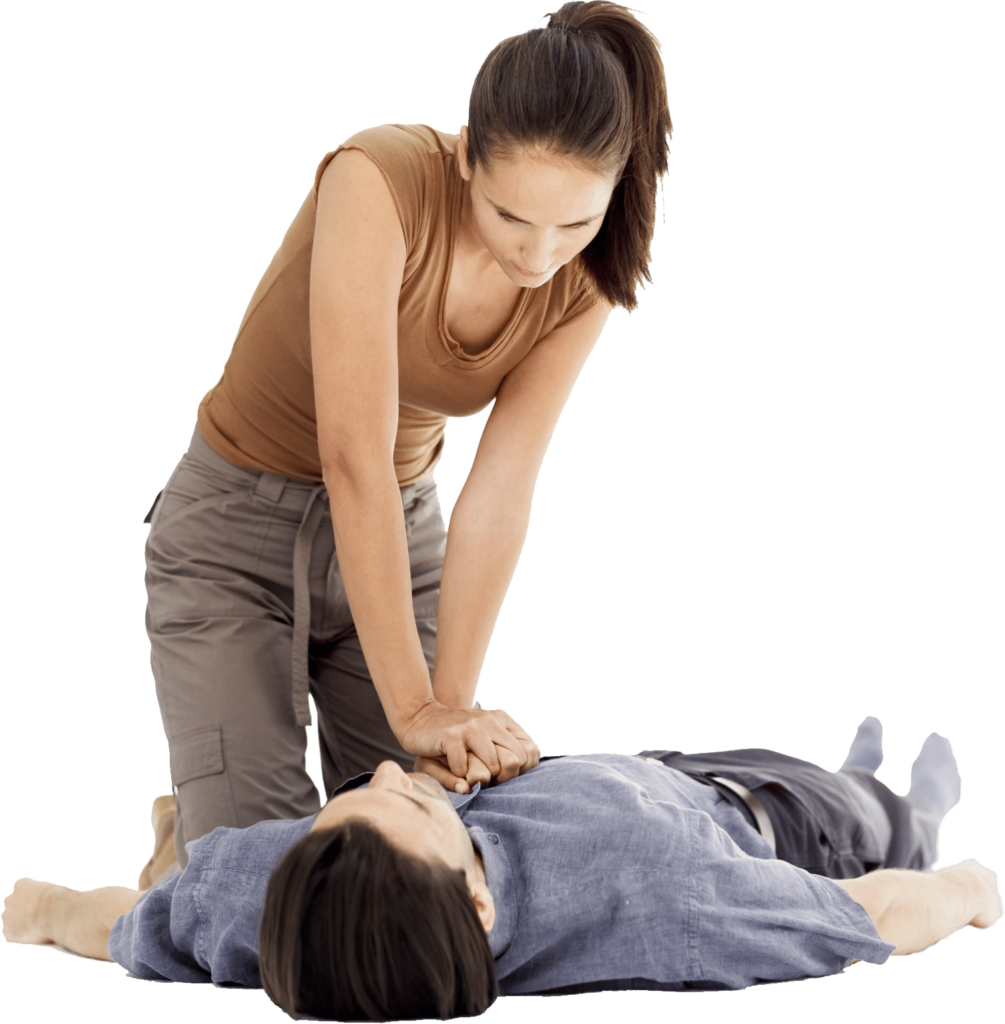

Healthcare workers are often on the front lines when emergencies strike. In moments where every second counts, having CPR certification can make all the difference. This important credential equips them with the skills to respond effectively to cardiac events and other critical situations. For healthcare professionals, knowing how to perform CPR is not just a nice bonus—it’s essential.
CPR certification covers essential life-saving techniques like chest compressions and rescue breathing. It also includes the use of Automated External Defibrillators (AEDs), which are vital in emergency care for patients of all ages. By being certified, healthcare workers ensure they are ready to handle these emergencies with competence and confidence.
Getting certified in CPR is not complicated but incredibly worthwhile. It involves thorough and practical training. Healthcare workers in Dallas have easy access to these certification classes, which can fit conveniently into their busy schedules. Understanding the importance of these skills and how to acquire them strengthens the health and safety of the entire community.
CPR certification is crucial for healthcare workers because they are the first to respond to medical emergencies in hospitals, clinics, and other healthcare settings. When a person experiences a sudden cardiac arrest, time is of the essence.
CPR, or cardiopulmonary resuscitation, involves chest compressions and rescue breaths, which maintain blood flow and oxygen to vital organs until more advanced care is available. For healthcare professionals, being adept at these lifesaving techniques ensures they can provide immediate and effective support when it matters most.
The health field is dynamic, and emergencies can arise unexpectedly. By securing CPR certification, healthcare workers also demonstrate their commitment to staying current with medical practices and standards.
The certification helps them meet regulatory requirements and maintain professional credibility. These skills ensure that they can act swiftly to stabilize a patient, which is an essential aspect of patient care.
Beyond regulatory reasons, CPR-certified healthcare workers offer peace of mind to patients and their families. Knowing that medical staff are fully equipped to manage emergencies builds trust and confidence.
This trust is vital in healthcare settings, where patients rely on medical professionals for their expertise and assurance. CPR certification not only involves mastering essential techniques but also reinforces the compassionate care that is central to healthcare.
CPR certification equips healthcare workers with a range of crucial skills vital for emergency care. These skills provide the foundation for effective patient management during critical incidents and can significantly impact patient outcomes.
Chest Compressions:
Learning how to administer chest compressions properly is key. It helps maintain blood flow to the brain and heart. Proper technique and rhythm are emphasized to make compressions effective, which is crucial in keeping the blood circulating until advanced help arrives.
Rescue Breathing:
Another important skill gained is rescue breathing. This involves giving breaths to an individual who is not breathing on their own. This skill helps ensure that oxygen continues to reach the lungs and brain, reducing the risk of brain damage.
AED Usage:
Understanding Automated External Defibrillator (AED) use is crucial. AEDs are devices that can restart the heart or regulate its rhythm. Training includes using AEDs on adults, children, and infants, broadening the scope of care healthcare workers can provide.
Airway Management:
Skills in managing airway obstructions, such as performing the Heimlich maneuver, are also covered. This skill enables quick action to prevent choking emergencies, which is particularly important in settings with patients vulnerable to airway blockages.
These skills are fundamental but specialized, making CPR certification in healthcare essential. They not only enhance the ability to save lives but also ensure effective patient care in critical situations. The CPR course provides a robust understanding of these techniques, enabling healthcare workers to execute them confidently and efficiently.
CPR certification plays a critical role in enhancing patient safety and improving outcomes. Healthcare workers with CPR skills can intervene quickly during emergencies, significantly increasing the chances of survival for patients experiencing cardiac arrest or other critical events. Swift and competent response during the first few minutes of a medical emergency can improve survival rates and reduce potential complications.
Hospitals and clinics benefit from having staff who are CPR certified, as it strengthens their emergency response capabilities. This skill ensures a well-prepared team ready to act without hesitation, which is vital in high-stress environments where every moment counts.
When healthcare professionals are prepared to deliver CPR and use an AED effectively, patients receive faster, more reliable care.
Moreover, CPR certification contributes to better patient outcomes by minimizing brain damage caused by oxygen deprivation. By ensuring blood and oxygen circulation, these life-saving techniques help stabilize patients while waiting for advanced medical interventions.
For families and the healthcare community, knowing that professionals are equipped and ready to provide immediate care offers reassurance and peace of mind. In essence, CPR certification is a foundational element of patient safety in healthcare settings, supporting positive and effective medical care.
Getting CPR certified in Dallas is straightforward and accessible. This ensures healthcare workers have the necessary skills to handle emergencies. Classes are offered at convenient times and locations, making it easier than ever for healthcare professionals to become certified.
Course Selection:
Decide between the CPR Certification course or the CPR + First Aid Training. Both courses cover essential techniques for adults, children, and infants, but the latter provides additional training in wound care and emergency response.
Schedule Flexibility:
Classes are available every Thursday evening and Saturday morning, fitting even the busiest schedules. Each class lasts about three hours, allowing participants to gain skills without taking too much time from their daily routines.
Certification Process:
After completing the course, participants receive an American Heart Association CPR Certification E-Card. This card is valid for two years, ensuring participants remain current with their life-saving skills.
Hands-On Training:
The courses provide practical experience with hands-on training. Instructors guide participants through CPR techniques, AED usage, and airway obstruction management to ensure a thorough understanding and readiness.
Becoming CPR certified in Dallas means taking a proactive step towards enhancing emergency preparedness. With comprehensive training and flexible scheduling, healthcare workers can easily obtain certification and contribute positively to patient care and safety.
CPR certification for healthcare workers is an indispensable part of their training. It empowers them with vital skills needed to address potential emergencies promptly and effectively.
By gaining expertise in chest compressions, rescue breathing, and AED use, healthcare professionals can significantly improve emergency response outcomes. This training also fosters confidence among patients and colleagues, who know that skilled hands are ready to keep situations under control when critical emergencies arise.
In Dallas, obtaining CPR certification is both simple and beneficial. Given the importance of these skills, ensuring healthcare workers have access to thorough and practical training can drastically impact patient safety and community health. Education professionals, parents, and others interested in learning CPR also benefit by enhancing their ability to assist in emergencies.
Take the next step in advancing your skills and ensuring you’re prepared for emergencies. At Rapid CPR Dallas, we offer flexible and comprehensive certification classes that align with your schedule and needs. Ensure you’re ready to make a difference in critical moments—join us and get your CPR certification in Dallas, TX!

